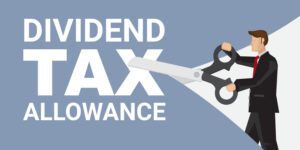If you set up a limited company and appoint yourself as a director, you will pay National Insurance contributions (NIC) in two ways – the company itself will pay NIC as an employer, and you will personally pay NIC on your director’s salary.
In this guide, we discuss the basics of National Insurance for limited companies, including the different types of contributions, current rates, and how to deduct and pay NIC through your company payroll.
The rates and figures stated in this post apply to the 2024-25 tax year, which runs from 6 April 2024 to 5 April 2025.
What are National Insurance contributions?
National Insurance is a type of UK tax that is paid on earnings from employment and profit from self-employment. These contributions fund and provide entitlement to certain benefits and the State Pension.
The requirement to make National Insurance contributions (NIC) applies to employers, employees (including company directors), and self-employed individuals.
Paying National Insurance is mandatory if you are at least 16 years old and:
- an employee (or company director) earning more than £242 a week, or
- self-employed and making a profit of more than £12,570 a year
UK employers must also pay National Insurance contributions on their employees’ earnings, expenses, and benefits.
Your limited company is classed as your employer, even if you own and operate the business as a sole director and shareholder.
HMRC collects NIC from employees and employers through Pay As You Earn (PAYE).
If you are self-employed (e.g. a sole trader or LLP member), you need to report and pay your National Insurance contributions through Self Assessment.
Different types of National Insurance
There are different classes (types) of National Insurance. The type of NIC you pay is dependent upon employment status and earnings.
Class 1
Class 1 National Insurance falls into two categories – employee (primary) contributions and employer (secondary) contributions.
Employees pay primary Class 1 National Insurance contributions on their wages if they:
- earn more than £242 a week, and
- are under the State Pension age
Most employees will pay the following NIC rates on their income for the current 2024-25 tax year:
- 8% on earnings between £242 and £967 a week (or £1,048 to £4,189 a month)
- 2% on earnings over £967 a week (or £4,189 a month)
There are different National Insurance rules for company directors. Contributions are assessed on their annual income rather than on what they earn each pay period. Therefore, as a company director, you will pay:
- 8% on salary earnings between £12,570 and £50,270 a year
- 2% on salary earnings above £50,270 a year
However, you can make ‘payments on account’ (advance payments) of directors’ contributions throughout the tax year, based on the actual intervals of salary payments (e.g. weekly or monthly), in the same way as for other company employees.
- Am I self-employed or employed – if I have a limited company?
- Employing staff in your new limited company
- Can a limited company have no employees?
Employers must pay secondary Class 1 National Insurance contributions on their employees’ wages and directors’ salaries. The current rate is 13.8% on earnings above the secondary threshold of £175 a week (£758 a month, £9,100 a year).
This applies even if you are the director of your own limited company and the only employee.
Employer’s National Insurance is classed as a tax-deductible expense for businesses. As the owner of a company, this means that any employer’s contributions your business makes will be deductible from taxable profits and reduce your Corporation Tax bill.
So, whilst National Insurance contributions may be an additional cost to your company, making these payments can be worthwhile for both you and the business.
Class 1A and 1B
Employers must also pay 13.8% Class 1A or Class 1B contributions on any taxable benefits or expenses they provide to their employees or directors.
Class 1A is payable on the value of work benefits, for example, a business mobile, company car, or health insurance. Contributions are calculated as a percentage of the cash equivalent of the benefit.
- An essential guide to company car tax
- 13 allowable expenses for limited companies to claim
- How to claim pre-trading expenses
Employers pay Class 1B contributions if they have a PAYE Settlement Agreement (PSA). This enables the business to make a single annual payment to HMRC to cover all the tax and NIC due on small or irregular taxable expenses and benefits.
Class 4 and voluntary Class 2
Class 4 NIC applies only to self-employed people with profits of more than £12,570 a year. The current rates are:
- 6% on profits between £12,570 and £50,270
- 2% on profits over £50,270
Most self-employed people pay their National Insurance contributions through Self Assessment after the end of each tax year. However, some individuals are required to make payments on account toward their annual tax bill.
With effect from 6 April 2024, self-employed people with profits above £12,570 are no longer required to pay Class 2 NICs. However, they will still receive access to contributory benefits (including the State Pension) through a National Insurance credit.
Those with profits between £6,725 and £12,570 will also continue to receive this credit without having to pay Class 2 NICs.
Individuals who pay Class 2 NICs voluntarily to get access to contributory benefits, including those with profits under £6,725, can still do so. The weekly rate is frozen at £3.45 for 2024-25.
Class 3
Class 3 NIC are voluntary contributions that you certain individuals can make to fill or avoid gaps in their National Insurance record. If you have gaps in your record, you may not have enough years of contributions to get the full State Pension or qualify for certain benefits.
As a company director, you may wish to make voluntary National Insurance contributions if you paid yourself a director’s salary below the Lower Earnings Limit (LEL) in any previous years.
- Most tax-efficient director’s salary and dividends for 2024-25
- A guide to company director pension contributions
- 2024-25 tax guide for UK business owners
Adopting the remuneration strategy of taking small salary payments and high dividends is generally the most tax-efficient way to pay yourself through a limited company. However, care must be taken to prevent gaps in your NI record.
If your annual salary is ever less than the LEL (£6,396 for 2024-25), you will not accrue a qualifying year toward the basic State Pension. Therefore, taking a salary above the Lower Earnings Limit but below the Primary Threshold (£12,570) will entitle you to National Insurance credits without triggering any primary contributions.
The Class 3 voluntary National Insurance rate for the 2024-25 tax year is £17.45 a week.
How do I pay NIC through my company?
If you are the director of a limited company, you are responsible for paying both primary and secondary Class 1 National Insurance contributions through HMRC’s PAYE system as part of your company’s payroll.
Every time you pay employees’ wages or your own director’s salary, your payroll software will:
- calculate and deduct Income Tax and primary NIC from each person’s earnings
- calculate employer’s National Insurance payable by the company on earnings above £242 a week
You must report these payments and deductions to HMRC on a Full Payment Submission (FPS) on or before each payday.
The company must then pay all primary and secondary contributions to HMRC by the 22nd of the following month (or the 19th if you pay by post).
Depending on whether you provide taxable expenses and benefits to yourself or other employees, the company may also be liable for Class 1A or Class 1B contributions. These must be paid to HMRC by the 22nd July after the end of the tax year.
Working out your director’s National Insurance contributions
There are two ways that you can work out how much National Insurance you owe as a company director, depending on the frequency of your salary payments.
If you pay yourself on an irregular basis, use the ‘standard annual earnings period method’:
- Each time you pay yourself, work out your National Insurance for your total salary earnings over the tax year to date, including any bonuses
- To work out what contributions you now owe, deduct the total employee National Insurance you have paid to date during the tax year
If you pay yourself on a regular basis, you can use the ‘alternative method’:
- Each time you pay yourself, work out your National Insurance contributions only on your pay for that period, including any bonuses
- At the end of the tax year, use your payroll software to work out whether you owe more primary National Insurance and, if so, deduct it from your last salary payment
When you report your director’s pay and deductions to HMRC on the Full Payment Submission, enter one of the following in the ‘Director’s NIC calculation method’ field:
- ‘AN’ if you are using the standard annual earnings period method
- ‘AL’ if you’re using the alternative method
You must pay your director’s NIC to HMRC after running your usual payroll (e.g. weekly or monthly), even though contributions are based on annual earnings.
Do I have to pay NIC on dividends?
You will not pay National Insurance contributions or Income Tax on any dividend payments you receive from your shareholdings. Instead, you will pay lower rates of dividend tax based on your Income Tax band.
- Dividends – do all shareholders get them?
- Dividend tax – a complete guide
- Do I need to register for Self Assessment if I run a Ltd company?
Dividends are payments that a company makes to its shareholders from profits, after the deduction of Corporation Tax. This prior taxation is the reason why shareholders pay a lower rate of personal tax on dividend income.
Wrapping up
Paying National Insurance contributions through a limited company is a relatively straightforward process if you use accounting software. However, you may find it beneficial to speak to an accountant if you need tax advice or help dealing with your payroll affairs.
If you have any questions about this post or would like to speak to someone about setting up a limited company, please leave a comment below or get in touch with our company formation team.













Join The Discussion
Comments (6)
This is actually really helpful! thank you
We’re pleased you found this article useful.
Kind regards,
The 1st Formations Team
Very useful, thank you!
We’re glad you found this article informative.
Kind regards,
The 1st Formations Team
What a great informative blog ! Thanks for the great information.
We’re glad you found this blog article useful.
Kind regards,
The 1st Formations Team